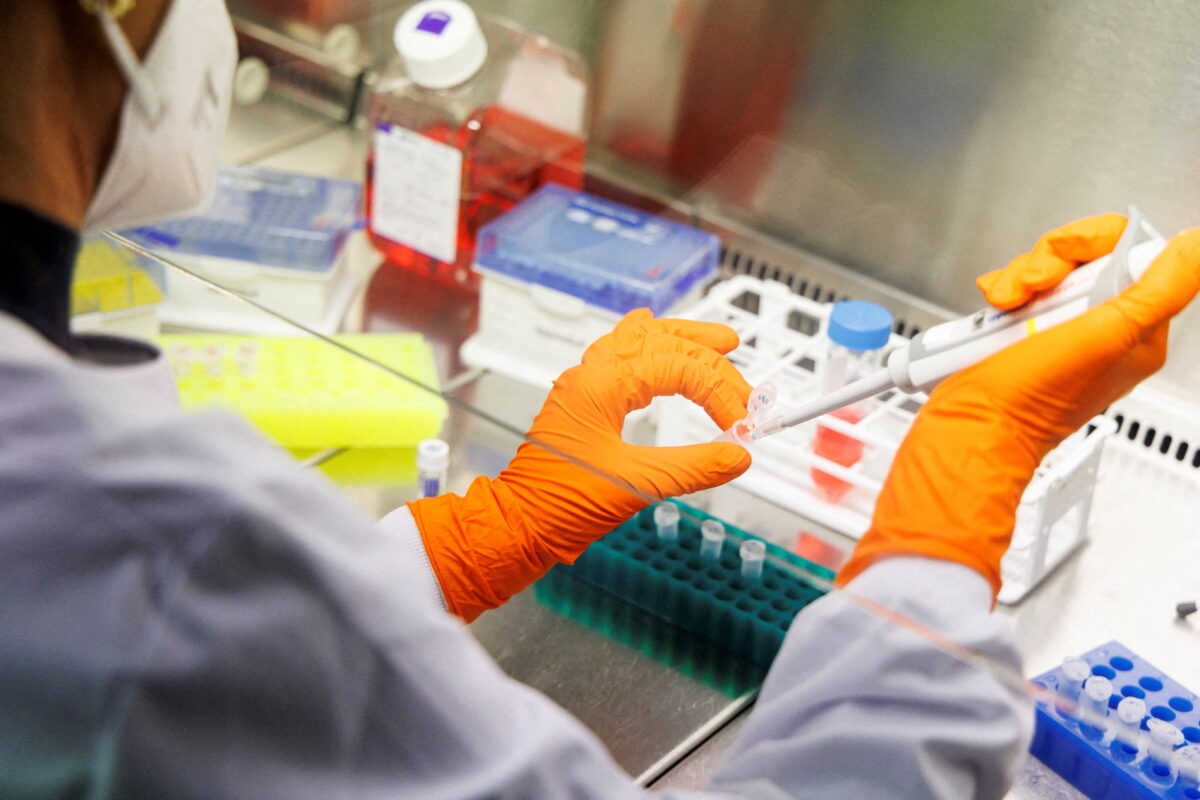GOP Lawmakers Demand Answers on Boston University’s Controversial COVID-19 Experiments on Mice
Republicans on the House Energy and Commerce Committee are seeking answers from Boston University over its “potentially risky gain-of-function research with coronaviruses.”In the preprint paper first released on Oct. 14, researchers with Boston University said they created a new strain of COVID-19 by combining the Omicron variant’s spike protein and the original Wuhan strain of COVID-19 variant. Dubbed Omicron-S, the lab-made hybrid killed 80 percent of mice infected with it. The research ignited an intense debate, with many expressing concerns about the nature of the work and the potential harm such an experiment could have on humans. Following the ensuing backlash, the university has issued a lengthy statement defending the research after public backlash, saying critics have misrepresented the goals of the study. It also denied that the research constituted gain of function—experiments that make pathogens more deadly or infectious. But the university’s argument has not quelled concerns. “Americans deserve the peace of mind that proper oversight is conducted to ensure the safety & accountability of any risky scientific research,” committee Republicans wrote on Twitter on Oct. 26. The letter’s signers include Reps. Cathy McMorris Rodgers (R-Wash.), the committee’s Republican leader, Morgan Griffith (R-Va.) of the Subcommittee on Oversight and Investigations, and Brett Guthrie (R-Ky.) of the Subcommittee on Health. FILE PHOTO: An employee of the vaccine company Bavarian Nordic works in a laboratory of the company in Martinsried near Munich, Germany, May 24, 2022. . REUTERS/Lukas Barth While the researchers acknowledged four grants from the National Institutes of Health (NIH) and its sub-agency, the National Institute of Allergy and Infectious Diseases (NIAID), the project appeared to surprise officials at the agencies. NIH is now examining whether the scientists violated the terms of the grant policy, or if the grant required review under the Proposed Research Involving Enhanced Potential Pandemic Pathogens (P3CO) framework, which is meant to guide funding decisions on risky research. “I think we’re going to have conversations over upcoming days,” Emily Erbelding, director of the NIAID’s division of microbiology and infectious diseases, told STAT News on Oct. 17. She said that the researchers’ original grant application didn’t indicate that they would perform this exact work, nor did the team inform the NIAID of the experiment’s potential to enhance the pathogenicity of the virus. “We wish that they would have, yes,” Erbelding replied when asked whether the researchers should have reported their intentions. Boston University, in an updated statement on Oct. 18, said that they “fulfilled all required regulatory obligations and protocols” from NIAID. NIAID funding was acknowledged in the paper because “it was used to help develop the tools and platforms that were used in this research; they did not fund this research directly,” the university said, adding that it credited an NIH award that funded a “shared instrumentation grant that helped support the pathology studies.” “If at any point there was evidence that the research was gaining function, under both NIAID and our own protocols we would immediately stop and report,” the university said. The Republican lawmakers in the letter asked the university to produce background materials related to the study, including all proposals and progress reports cited, funding streams to Boston University’s National Emerging Infectious Diseases Laboratories related to the study, the university’s safety protocols relating to risky biological research, and correspondence over whether the study should be subject to a P3CO review. They also requested a staff briefing from the university with appropriate subject matter experts. The Epoch Times has contacted Boston University for comment. Follow Eva Fu is a New York-based writer for The Epoch Times focusing on U.S. politics, U.S.-China relations, religious freedom, and human rights. Contact Eva at [email protected]

Republicans on the House Energy and Commerce Committee are seeking answers from Boston University over its “potentially risky gain-of-function research with coronaviruses.”
In the preprint paper first released on Oct. 14, researchers with Boston University said they created a new strain of COVID-19 by combining the Omicron variant’s spike protein and the original Wuhan strain of COVID-19 variant. Dubbed Omicron-S, the lab-made hybrid killed 80 percent of mice infected with it.
The research ignited an intense debate, with many expressing concerns about the nature of the work and the potential harm such an experiment could have on humans.
Following the ensuing backlash, the university has issued a lengthy statement defending the research after public backlash, saying critics have misrepresented the goals of the study. It also denied that the research constituted gain of function—experiments that make pathogens more deadly or infectious.
But the university’s argument has not quelled concerns.
“Americans deserve the peace of mind that proper oversight is conducted to ensure the safety & accountability of any risky scientific research,” committee Republicans wrote on Twitter on Oct. 26.
The letter’s signers include Reps. Cathy McMorris Rodgers (R-Wash.), the committee’s Republican leader, Morgan Griffith (R-Va.) of the Subcommittee on Oversight and Investigations, and Brett Guthrie (R-Ky.) of the Subcommittee on Health.

While the researchers acknowledged four grants from the National Institutes of Health (NIH) and its sub-agency, the National Institute of Allergy and Infectious Diseases (NIAID), the project appeared to surprise officials at the agencies. NIH is now examining whether the scientists violated the terms of the grant policy, or if the grant required review under the Proposed Research Involving Enhanced Potential Pandemic Pathogens (P3CO) framework, which is meant to guide funding decisions on risky research.
“I think we’re going to have conversations over upcoming days,” Emily Erbelding, director of the NIAID’s division of microbiology and infectious diseases, told STAT News on Oct. 17.
She said that the researchers’ original grant application didn’t indicate that they would perform this exact work, nor did the team inform the NIAID of the experiment’s potential to enhance the pathogenicity of the virus.
“We wish that they would have, yes,” Erbelding replied when asked whether the researchers should have reported their intentions.
Boston University, in an updated statement on Oct. 18, said that they “fulfilled all required regulatory obligations and protocols” from NIAID.
NIAID funding was acknowledged in the paper because “it was used to help develop the tools and platforms that were used in this research; they did not fund this research directly,” the university said, adding that it credited an NIH award that funded a “shared instrumentation grant that helped support the pathology studies.”
“If at any point there was evidence that the research was gaining function, under both NIAID and our own protocols we would immediately stop and report,” the university said.
The Republican lawmakers in the letter asked the university to produce background materials related to the study, including all proposals and progress reports cited, funding streams to Boston University’s National Emerging Infectious Diseases Laboratories related to the study, the university’s safety protocols relating to risky biological research, and correspondence over whether the study should be subject to a P3CO review.
They also requested a staff briefing from the university with appropriate subject matter experts.
The Epoch Times has contacted Boston University for comment.












